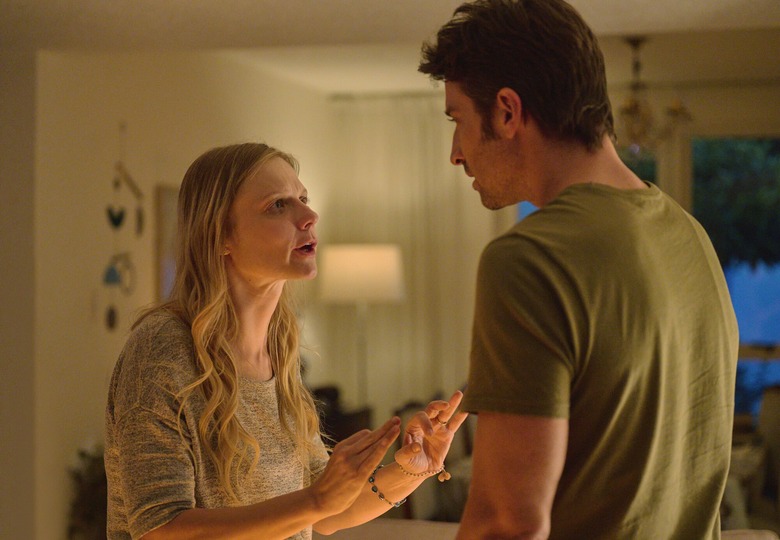Triptych Is A TV Thriller From Mexico That Netflix Viewers Can't Get Enough Of
When Netflix updated its global Top 10 data on Tuesday, the weekly chart that offers the best way to track what's most popular on the streaming service around the world, it revealed more good news for Triptych — an 8-episode TV thriller from Mexico about twin sisters separated at birth.
Triptych, which also goes by the Spanish title of Triada, is in fact the #1 non-English TV series in the world, per Netflix's data, a position that the show has held on to for a second week in a row now. The show racked up 39.6 million hours viewed on the streaming giant for the 7-day period that ended on March 5, putting it in the Top 10 in 70 countries around the world.
What is Triptych about?
At the start of Episode 1, viewers are told that "this story is inspired by actual events," though we don't know for sure what story or exact series of events inspired the show. It does call to mind a story like the one presented in the 2018 documentary Three Identical Strangers, which we'll say more about below.
From Netflix's summary of Triptych:
"When a woman named Aleida takes her doctor hostage and is subsequently shot by police, forensics agent Rebecca is surprised when she shows up on the scene. Aleida looks identical to her – and knows her name. They even have the same birthday. As Rebecca investigates her twin, she soon discovers the pair also share all of their DNA with a third sibling."
Over time, Netflix continues, Rebecca's research reveals terrifying results about the trio that endangers everyone around them.
The thriller, created by screenwriter Leticia López Margalli (Dark Desire), premiered exactly two weeks ago on Netflix, and it's been the #1 non-English show on the streamer every week since then. In its first week of streaming availability (the 7-day period that ended on February 26), Triptych racked up 50.7 million hours viewed around the world.
Another gripping separated-at-birth story
Separated-at-birth stories like Triptych can certainly make for a particularly engrossing narrative, whether true or otherwise. Also on Netflix, for example, is another Mexican drama (The Five Juanas) wherein five women from different walks of life meet each other at a hotel in Cancun — they all share the same name, and they all have the same strange birthmark. The next step in this 10-episode saga: Taking a DNA test to determine whether they're all related.
On the real-life side of the equation, the Three Identical Strangers documentary mentioned above tells the story of triplets separated at birth who meet as adults. The siblings, per Netflix, "later found out they were adopted by different families as part of an ethically dubious social experiment."

